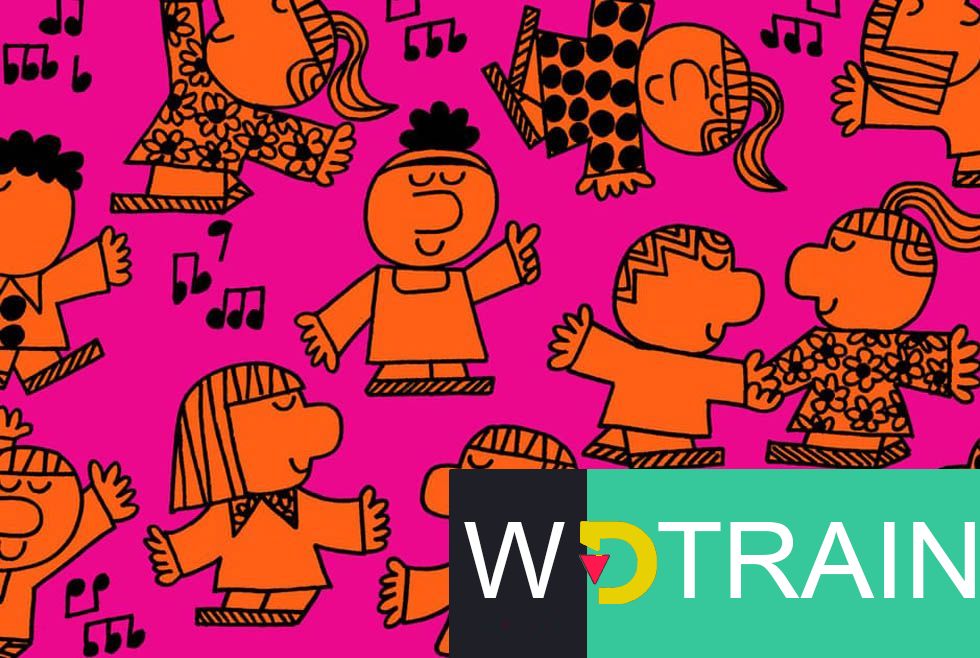Loretta Breuning grew up round a whole lot of unhappiness, however couldn’t work out why. To attempt to discover out, she avidly learn up on psychology, alongside elevating two kids and dealing as a professor in administration at California State College. “I believed that, if I adopted the analysis, it might make everyone blissful on a regular basis,” she says. “After which I noticed that my college students weren’t that motivated, my children weren’t that motivated, and the youngsters of social science professors weren’t that motivated. So I began on the lookout for the deeper roots of our motivation and our feelings.” She went on to jot down a e book, Habits of a Completely happy Mind: Retrain Your Mind to Increase Your Serotonin, Dopamine, Oxytocin and Endorphin Ranges.
Immediately, when the information appears endlessly bleak, all of us want an additional blast of positivity. Can harnessing our understanding of mind chemical substances – from dopamine and endorphin to oxytocin and serotonin – assist? Breuning, together with various scientists working within the area, imagine so.
Most of what we all know concerning the organic foundation of our feelings comes from analysis on animals. Consider the lab rats who discovered to press sure levers to get extra sugar or cocaine and who demonstrated the two-pronged pleasure circuit of wanting and liking. Wanting is related to the neurotransmitter dopamine, and liking with the heavenly emotions of cannabinoids and opiates that our our bodies produce once we get our needs. Oxytocin’s repute because the love hormone stems largely from experiments with prairie voles nurturing their younger, which confirmed oxytocin is what makes social bonding so pleasant. In different phrases, these kinds of research could not qualify us to make detailed pronouncements on the trigger and impact of any exercise on any particular person human’s mind chemical substances, however they do provide helpful dots we will be a part of.
Dopamine
We regularly consult with pleasures as rewards, as a result of they advanced to encourage behaviours that promote survival. However they undoubtedly should not, says Breuning, “simply to make you cheerful about sitting round considering the universe”.
Dopamine is usually talked about by way of addictions, consumerism and social media, however it’s there to alert us to hunt primary requirements corresponding to meals and a mate. “Take into consideration a monkey on the lookout for meals,” says Breuning. “Once they see meals within the distance, dopamine is launched, and that will get their consideration, releases their reserve tank of power, and motivates them to step ahead. Every step towards the reward triggers extra dopamine.”
Dopamine is a part of pleasure, nevertheless it’s the anticipatory, excited, looking side. So aside from looking at junk meals advertisements, what are the wholesome methods to get the excitement? “Have a long-term objective, a short-term objective, and a middle-term objective,” Breuning says. “So that you simply’re all the time stepping towards a reward, and also you’re all the time stimulating it slightly bit.” This can assist, as a result of “dopamine doesn’t final, it’s not designed to final. In case you’re dying of thirst, as quickly as you get water, then water doesn’t make you cheerful any extra.” She suggests constructing a ability “that helps you attain a distant dream. Perhaps you solely spend 10 minutes a day on that ability, nevertheless it frequently sparks that feeling that you simply’re getting nearer to the reward. One other one could be planning an occasion like a celebration, something that provides you one thing to stay up for, that you’ve got management over, you could often make investments effort in.”
There are zillions of unhealthy choices for short-term objectives, in fact – sweets, senseless web procuring, medicine and booze – however Breuning advises simply taking time to plan your leisure. “You possibly can take pleasure in your self by researching a listing of issues that you simply really like, to be prepared when you’ve got a drained second.”
It was the professor Kent Berridge who first recognized the pleasure system of wanting and liking. The bliss of the liking a part of pleasure has, he says, “a a lot smaller and extra fragile mind foundation” than wanting – the dopamine bit. “That’s a part of why the extreme pleasures in life are much less frequent and fewer sustained than intense needs.”
However even short-lived pleasure can put us on a extra optimistic footing, so thank goodness there are a lot of sources: seeing a cute child laughing, consuming tasty meals, and intercourse are all wonderful methods to mild up the pleasure centres. Sadly, most of those include built-in satiety – as soon as we’ve eaten a certain quantity of cheese, it turns into much less and fewer pleasing and we turn into “full”, not less than till we see the dessert menu and a brand new wave of dopamine is triggered.
However there’s a straightforward option to maintain the thrilling push-pull cycle of delight: “Music, and in addition dance,” says Olivia Foster Vander Elst, a musician turned neuroscientist, who’s doing a PhD in salsa dancing at Aarhus College in Denmark. “With each, you get this fixed renewal of the liking part. So that you get these actually lengthy pleasure cycles. And the satiation part can be fairly weak.” It doesn’t matter when you hearken to Let It Go repeatedly, or a playlist of your favorite arias – the pleasure retains coming. A latest paper Foster Vander Elst co-authored states that the optimistic impact of music is partly all the way down to a relentless anticipation of what’s coming subsequent: “The ‘candy anticipation’ stage of this pleasure cycle is each extremely motivating and pleasurable.”
Foster Vander Elst is devising methods to measure mind exercise throughout dancing. How is it, she asks, that even once we’re exhausted, we will dance for hours? “It’s an incredible factor that the exhaustion drops away because of shifting to the music.” Salsa has the added benefit of being a associate dance. “That hyperlinks in with some very cool analysis that’s been completed on dance and synchrony typically, that it fosters emotions of empathy and closeness to different individuals,” she says.
You may get the identical feelings from merely watching aesthetically pleasing actions (good day, Strictly). We could not but know exactly what’s occurring within the mind in dance, however, says Foster Vander Elst, “we all know that shifting in synchrony raises ache thresholds”.
Oxytocin
This carry us again to the so-called love hormone, oxytocin. Breuning is anxious we’ve got unhelpful idealised expectations of it. “Animals search a bunch after they really feel threatened. So you possibly can let down your guard since you’re protected by others – an inherently egocentric feeling. A zebra can’t eat if it’s continuously on the lookout for a lion. When it’s surrounded by others then it might probably calm down and eat.”
Whereas bonding makes you’re feeling secure, Breuning says, “when you’ve got idealised notions about social teams, then frankly your social relations can find yourself disappointing”. As an alternative she advises us to consider belief quite than social lives. “That belief is reciprocal, so you need to provide assist so as to get assist.” In case you’re feeling oxytocin-starved, Breuning’s answer “is to construct your facet of a bridge with lots of people. You possibly can’t management after they cross it, however you’ll be properly shocked.” Getting oxytocin this fashion, she says, “is significantly better than feeling like you need to comply with the herd each minute, which is what your interior mammal thinks – it feels threatened whenever you’re remoted.”
Serotonin
That is the neurotransmitter that we regularly hear about in relation to antidepressant medicine and the excessive of MDMA. However its function in temper is just not nicely understood. We make it from a substance referred to as tryptophan, which is present in loads of wholesome meals, however there’s no proof that consuming them will increase serotonin ranges or happiness. We do know that the mysterious universe of microbes that dwell in our guts has been positively linked to serotonin manufacturing (90% of our serotonin is made within the intestine), so consuming a microbiome-supportive weight loss plan can assist. Keep away from high-sugar and processed meals, and go for a various, high-fibre, principally plant-based weight loss plan incorporating fermented merchandise corresponding to miso and sauerkraut. There may be loads of proof that consuming like this ends in much less despair and nervousness.
Breuning hyperlinks serotonin’s glow to feeling like a winner. “Mammals are very aggressive and hierarchical,” she says. “They’re all the time on the lookout for the one-up place, as a result of that helps them unfold their genes. Everybody has this impulse, and your mammal mind rewards you with serotonin whenever you achieve the one-up place.” However it doesn’t final, she says, so you possibly can find yourself in a endless needy cycle.
Her recommendation is to seek out methods to place your self up, with out placing others down, by focusing in your strengths. “But in addition,” she says, “be philosophical and know that we’re not designed to have serotonin each minute.”
Ciara McCabe, professor of neuroscience, psychopharmacology and psychological well being on the College of Studying, says it’s probably that serotonin ranges are comparatively mounted. “What we do know is that when you have interaction in what you take into account subjectively rewarding, pleasurable experiences, you’ll most likely launch a few of these chemical substances concerned in enjoyment, calmness or contentment.” And when you make a behavior of doing these issues – whether or not it’s enjoying together with your cat, profitable at Monopoly or canoeing – even the anticipation and cues related to them will turn into pleasurable.
Endorphins
These are endogenous (which means we make them in our our bodies) opioids that flutter by way of us in fleeting moments of intense pleasure, however can even boring the ache of damage. They’re all the time trotted out as the rationale train makes us really feel good, however in reality train produces a veritable cocktail of medicine together with different bodily and psychological advantages – from a way of feat to raised cardiovascular well being.
David Raichlen is an evolutionary biologist at College of Southern California whose present objective is to find why train is rewarding to people when most animals advanced to protect bodily exertion for when essential (working from a lion, say). His speculation is that it advanced 2m years in the past, once we swapped a lifetime of foraging for higher-octane hunter-gathering.
His analysis has proven that once we train reasonably – maybe a brisk stroll wherein we get out of breath – we make endocannabinoids. These are, says Raichlen, “the physique’s type of the energetic ingredient in marijuana. The principle endocannabinoid that appears to be related to train is named anandamide, which is known as after the Sanskrit phrase ananda, which means bliss.” Once you get this sort of endocannabinoid activation, he says, a few issues can occur. “One, you get that analgesic impact, a type of pain-relief impact. And there’s additionally a gentle, rewarding sensation – not just like the excessive that you’d get from smoking marijuana, since you’re not bathing your mind on this chemical – being produced on demand, probably in areas related to reward.” Fairly than euphoria, the result’s a gentler glow of wellbeing.
These chemical substances are damaged down pretty shortly, however not earlier than they cheer us up. “We’re such a bizarre species, as a result of we’ve got this capability to consider how we’re feeling,” says Raichlan. “You get this shift in your temper from bodily exercise, after which that alters your mindset for the remainder of the day, even when that chemical is gone.”
If an damage or well being situation means you possibly can’t train as a lot as you prefer to, PET scanning has not too long ago revealed one other path to endorphin heaven: social laughter. So possibly it’s the time to get to a comedy membership or ring your humorous good friend. A 2017 research by Finnish and British researchers discovered that social laughter “considerably elevated” endorphins.
Raichlen thinks we will all profit from understanding these life-style connections to temper, “as a result of it implies that we’re not completely helpless. If there are actions that folks can take which might be tried and true and scientifically examined, they’ll enhance the way in which you’re feeling. I believe it’s actually necessary for individuals to know that.”






